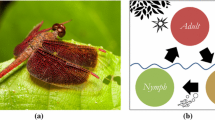Abstract
Coordinated controller tuning of the boiler turbine unit is a challenging task due to the nonlinear and coupling characteristics of the system. In this paper, a new variant of binary particle swarm optimization (PSO) algorithm, called probability based binary PSO (PBPSO), is presented to tune the parameters of a coordinated controller. The simulation results show that PBPSO can effectively optimize the control parameters and achieves better control performance than those based on standard discrete binary PSO, modified binary PSO, and standard continuous PSO.
Similar content being viewed by others
References
W. Tan, J. Z. Liu, F. Fang, Y. Q. Chen. Tuning of PID controllers for boiler turbine units, ISA Transactions, vol. 43, no. 4, pp. 571–583, 2004.
J. Waddington, G. C. Maples. The control of large coal and oil fired generating units, Power Engineering Journal, vol.1, no. 1, pp. 25–36, 1987.
J. G. Ziegler, N. B. Nicholas. Optimum settings for automatic controllers, Transactions of the ASME, vol. 64, pp. 759–768, 1942.
Y. Li, H. H. Ang, G. C. Y. Chong. PID control system analysis and design, IEEE Control Systems Magazine, vol. 26, no. 1, pp. 32–41, 2006.
IEE Colloquium on Getting the Best Out of PID inMachine Control, IEEE, London, UK, 1996.
P. Marsh. Turn on, tune in, where can the PID controllers go next, New Electron, vol. 31, no. 4, pp. 31–32, 1998.
G. H. Cohen, G. A. Coon. Practical considerations of retarded control, Transactions of the ASME, vol. 75, pp. 827–834, 1953.
Q. G.Wang, B. Zou, T. H. Lee, Q. Bi. Auto tuning of multivariable PID controllers from decentralized relay feed back, Automatica, vol. 33, no. 3, pp. 319–330, 1997.
Y. Li, K. H. Ang, G. C. Y. Chong, W. Y. Feng, K. C. Tan, H. Kashiwagi. CAutoCSD-evolutionary search and optimisation enabled computer automated control system design, International Journal of Automation and Computing, vol.1, no. 1, pp. 76–88, 2004.
H. Zhou, M. H. Zhang. A neural intellectual decoupling control strategy for a power plant ball miller, International Journal of Automation and Computing, vol. 2, no. 1, pp. 43–47, 2005.
P. Bhatt, R. Roy, S. P. Ghoshal. GA/particle swarm intelligence based optimization of two specific varieties of controller devices applied to two area multi units automatic generation control, International Journal of Electrical Power and Energy Systems, vol. 32, no. 4, pp. 299–310, 2010.
H. Zhu, L. X. Li, Y. Zhao, Y. Guo, Y. X. Yang. CAS algorithm-based optimum design of PID controller in AVR system, Chaos, Solitons & Fractals, vol. 42, no. 2, pp. 792–800, 2009.
M. R. AlRashidiry, M. E. E. Hawary. A survey of particle swarm optimization applications in electric power systems, IEEE Transactions on Evolutionary Computation, vol. 13, no. 4, pp. 913–918, 2009.
Z. H. Zhan, J. Zhang, Y. Li, H. S. Chung. Adaptive particle swarm optimization, IEEE Transactions on System, Man, and Cybernetics, vol. 39, no. 6, pp. 1362–1381, 2009.
J. Kennedy, R. C. Eberhart. A discrete binary version of the particle swarm optimization algorithm. In Proceedings of IEEE International Conference on Systems, Man, and Cybernetics, IEEE, Orlando, USA, pp. 4104–4108, 1997.
H. Shayeghi, M. Mahdavi, A. Bagheri. An improved DPSO with mutation based on similarity algorithm for optimization of transmission lines loading, Energy Conversion and Management, vol. 51, no. 12, pp. 2715–2723, 2010.
A. Uncler, A. Murat. A discrete particle swarm optimization method for feature selection in binary classification problems, European Journal of Operational Research, vol. 206, no. 3, pp. 528–539, 2010.
J. Kennedy, R. C. Eberhart. Particle swarm optimization. In Proceedings of IEEE International Conference on Neural Networks, IEEE, Perth, Australia, vol. 4, pp. 1942–1948, 1995.
Q. Shen, J. H. Jiang, C. X. Jiao, G. L. Shen, R. Q. Yu. Modified particle swarm optimization algorithm for variable selection in MLR and PLS modeling: QSAR studies of antagonism of angiotensin II antagonists, European Journal of Pharmaceutical Sciences, vol. 22, no. 2–3, pp. 145–152, 2004.
Author information
Authors and Affiliations
Corresponding author
Additional information
This work was supported by Projects of Shanghai Science and Technology Community (No. 10ZR1411800, No. 08160705900, No. 08160512100), Shanghai University “the 11th Five-Year Plan”, 211 Construction Project, and Mechatronics Engineering Innovation Group Project from Shanghai Education Commission.
Muhammad Ilyas Menhas received the B. Sc. degree in electrical engineering from University of Azad Jammu & Kashmir Pakistan in 2002. He has been an assistant engineer in AJK Electricity Department and a visiting lecturer at Centre for Computer Science and Information Technology University College Kotli, Azad Jammu & Kashmir, Pakistan. Currently, he is a Ph.D. candidate at School of Mechatronics and Automation Shanghai University, Shanghai, PRC.
His research interests include intelligent optimization algorithms and automatic control.
Ling Wang received the B. Sc. and Ph.D. degrees in control theory and control engineering from East China University of Science and Technology, PRC in 2002 and 2007, respectively. He is an associate professor at School of Mechatronics and Automation, Shanghai University, PRC.
His research interests include intelligent optimization algorithms and automatic control.
Min-Rui Fei received the Ph.D. degree in control theory and control engineering from Shanghai University, PRC in 1997. Since 1998, he has been a professor at School of Mechatronics and Automation, Shanghai University. He is a vice chairman of Chinese Association of System Simulation, a standing director of China Instrument & Control Society, and director of Chinese Artificial Intelligence Association.
His research interests include intelligent control, networked control system, and wireless sensor networks.
Cheng-Xi Ma received the M. Sc. degree in control theory and control engineering from School of Mechatronics and Automation, Shanghai University, PRC in 2010. He is an employee of East China Electric Power Design Institute, PRC.
His research interests include optimization and automatic control.
Rights and permissions
About this article
Cite this article
Menhas, M.I., Wang, L., Fei, MR. et al. Coordinated controller tuning of a boiler turbine unit with new binary particle swarm optimization algorithm. Int. J. Autom. Comput. 8, 185–192 (2011). https://doi.org/10.1007/s11633-011-0572-6
Received:
Revised:
Published:
Issue Date:
DOI: https://doi.org/10.1007/s11633-011-0572-6




